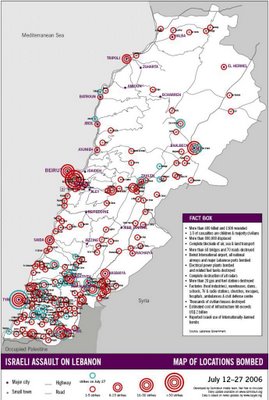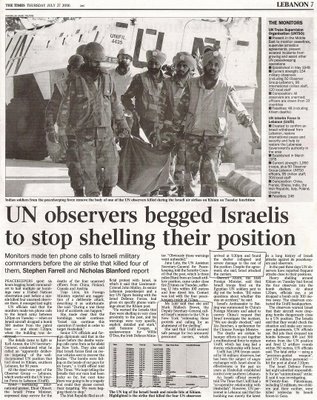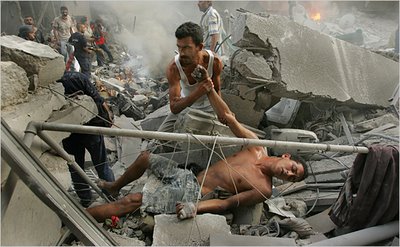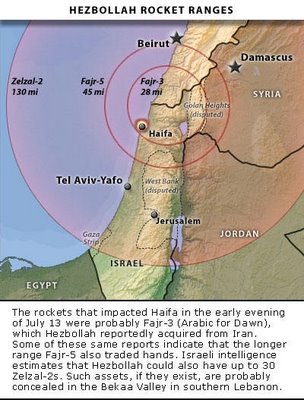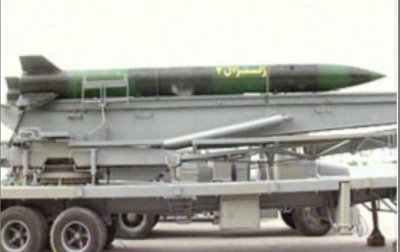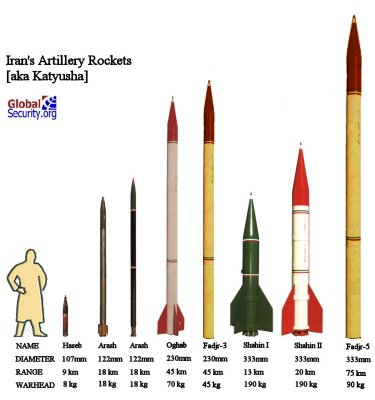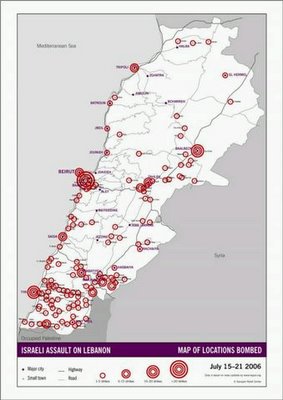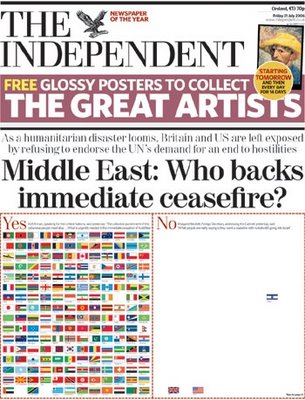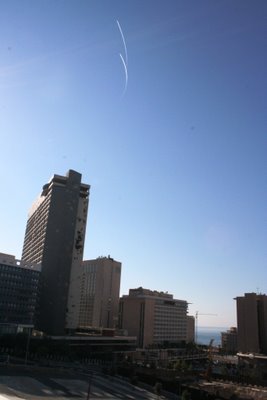 I find it rather odd that a State which declares a war on 'terror' itself used 'terror' in its past. I know this thought has been expressed before, but it is important that even though I do not believe in the killing of innocent civilians, it is even more important that light is shed on true historic facts. Please read the latter article posted on Wikipedia. I adore the similarities between the Irgun poster (pictured above) and the Hizbullah flag (found here: http://www.worldstatesmen.org/lb-hezb.gif). Simply unbelievable. Pay attention to the map (which includes Jordan) and the smaller text in bold which reads: "The sole solution." This poster was distributed in Central Europe.
I find it rather odd that a State which declares a war on 'terror' itself used 'terror' in its past. I know this thought has been expressed before, but it is important that even though I do not believe in the killing of innocent civilians, it is even more important that light is shed on true historic facts. Please read the latter article posted on Wikipedia. I adore the similarities between the Irgun poster (pictured above) and the Hizbullah flag (found here: http://www.worldstatesmen.org/lb-hezb.gif). Simply unbelievable. Pay attention to the map (which includes Jordan) and the smaller text in bold which reads: "The sole solution." This poster was distributed in Central Europe.
My favorite parts of the Wiki entry are: "Eliminate or reduce the threat of Arab attacks on Jewish targets by assured and harsh retaliation for such attacks"; and "In 1948, the group was formally dissolved and its members integrated into the newly formed Israeli Defense Forces. This integration largely coincided with the sinking of the Altalena, a ship with fighters Irgun had recruited and arms Irgun had acquired for the Israeli forces."
Again, this is posted to start a commentary on what is terrorism. Who gives it legitemacy? Werent the French Resistance considered heros for some and terrorists for others? I am not for the killing of innocents, nor for states within a state, much the contrary. I want a free, independent, sovereign and united Lebanon. But I am also not ignorant, and know what has happened in the history of the Middle East. This has to be brought up.
enjoy, mrtez...
From Wikipedia:Irgun (ארגון), shorthand for Irgun Tsvai Leumi (ארגון צבאי לאומי, also spelled Irgun Zvai Leumi),
Hebrew for "National Military Organization", was a clandestine militant
Zionist group that operated in the
British Mandate of Palestine from 1931 to 1948. In Israel, this group is commonly referred to as Etzel (אצ"ל), an acronym of the Hebrew initials. In the time in which the Irgun operated, often people referred to the Irgun as 'הגנה ב or ההגנה הלאומית. The Irgun was classified by the
British authorities and several other Jewish organizations as a
terrorist organization, while others considered it to be an
independence movement. Its political association with
Revisionist Zionism rendered it a predecessor movement to modern Israel's
right-wing Likud party/coalition.
Founding, development and key eventsThe group was an offshoot of the
Haganah in protest both against its policy of restraint and
socialist leanings. Based on the premises formulated by
Ze'ev Jabotinsky that "every
Jew had the right to enter
Palestine; only active retaliation would deter the
Arabs; only Jewish armed force would ensure the Jewish state," (Howard Sachar: A History of the State of Israel, pps 265-266) the group made retaliation against Arab attacks a central part of their initial efforts. The
Jewish Agency denounced the existence, strategy, and tactics of the group from the very outset, although the Haganah cooperated with Irgun on several occasions.
Irgun was founded in 1931 by
Avraham Tehomi, following a largely political and ideological split with the
Haganah after he had assumed leadership over the district of
Jerusalem. Irgun differentiated itself from the Haganah by disassociating from the socialist ideology and the prevalent strategy of Havlagah, or restraint. Throughout its history Irgun advocated a more decisive use of force in the defense of Jews in Mandate Palestine and in advancing the formation of a Jewish state.
While the strategy, tactics, and operational methods of the organization changed through the years, its primary goals were to:
- Provide a non-Socialist alternative to the leading Zionist organizations;
- Eliminate or reduce the threat of Arab attacks on Jewish targets by assured and harsh retaliation for such attacks;
- Bring to an end the British mandatory rule, which they considered in violation of international law
The group went through several phases in its short lifespan:
From 1931 to 1937 it was a small, renegade group that undertook scattered attacks against Arab targets. This phase ended when the group itself split, with some of its leaders, including the original founder, Tehomi, returning to the Haganah, and the group began formally identifying itself as "Etzel" (Irgun).
During the
Great Uprising (1936-1939), in which about 320
Jews were killed in Arab attacks, Irgun resumed its reprisal attacks against Arabs. Following the killing of five Jews at
Kibbutz Kiryat Anavim on
November 9,
1937, Irgun launched a
series of attacks which lasted until the beginning of
World War II, in which more than 250 Arabs were killed.
These attacks coincided roughly with Irgun's campaign to facilitate the immigration of European Jews who faced discrimination, murder and pogroms in Europe. The first vessel arrived on
April 13,
1937, and the last on
February 13,
1940. All told, about 18,000 Jews escaped
genocide in Europe in this way.
Upon the publication of the
White Paper in May of 1939, Irgun concentrated all its efforts against the British.
From 1940 through 1943, Irgun declared a truce against the British, and supported Allied efforts against Nazi forces and their allies in the area by enlisting its members in British forces and the
Jewish Brigade. A small group lead by
Avraham Stern, who insisted on continuing to fight the British, broke off and formed an independent group,
Lehi. In 1941, the Irgun leader,
David Raziel volunteered for a dangerous British military mission in
Iraq to capture or kill
Amin al-Husayni, but was killed by a
German bomber before the operation could be finished.
In February of 1944, under the new leadership of
Menachem Begin, Irgun resumed hostilities against the British authorities. The purpose of these attacks was to increase the cost of British mandatory rule and influence British public opinion so as to encourage British withdrawal. It included attacks on prominent symbols of the British administration, including the
British military, police, and civil headquarters at the
King David Hotel and the British prison in
Acre. Although these attacks were largely successful, several Irgun operatives were captured, convicted, and hanged. Refusing to accept the jurisdiction of the British courts, those accused refused to defend themselves. The Irgun leadership ultimately responded to these executions by hanging two British sergeants, which effectively brought the executions to an end.
Following the assassination of
Lord Moyne by
Lehi, the
Yishuv and
Jewish Agency initiated "
The Hunting Season" on Irgun and the Lehi group, facilitating the arrest of some 1000 members of those organizations who were interned in British camps. The British deported 251 of them to camps in
Africa.
From about October of 1945 until July 1946, Irgun was in an alliance with the Haganah and Lehi called the
Jewish Resistance Movement (תנועת המרי העברי), organized to fight British restrictions on Jewish immigration. The Haganah's active participation in the Resistance Movement ended as a result of
Operation Agatha, and it formally abandoned the alliance following the Irgun bombing of British military, police, and civil headquarters at the King David Hotel which was a retaliation for the Agatha raid.
From July 1946 until June 1948, Irgun fought as irregulars against the British mandate and Arab forces, informally in coordination with Haganah forces. Their participation in alleged
war crimes at
Deir Yassin has been widely discussed and documented. Their largest single operation was a successful assault on
Jaffa (an Arab enclave according to the UN partition plan) starting on April 25.
In 1948, the group was formally dissolved and its members integrated into the newly formed
Israeli Defense Forces. This integration largely coincided with the sinking of the
Altalena, a ship with fighters Irgun had recruited and arms Irgun had acquired for the Israeli forces.
Legacy of IrgunLeaders within the mainstream
Jewish Agency,
Haganah,
Histadrut, as well as British authorities, routinely condemned (publicly at least; privately the Haganah kept a dialogue with the dissident groups) Irgun operations as
terrorist and branded it an illegal organization, as a result of the group's attacks on civilian targets. In their defense, former Irgun leaders assert that:
- The premises for their founding and strategy were vindicated by subsequent events. Arab violence against Jews in the mandate of Palestine could only be deterred through retaliation; the British authorities only ended their restrictions on Jewish immigration when pressured by force; and unrestricted Jewish immigration was a matter of saving lives, both during the
Shoah and during post-World War II
pogroms in
Poland and
Ukraine.
- Operations that are usually characterized as "terrorist" had another character. The
King David Hotel bombing, in which 91 people were killed, most of them civilians, was considered a legitimate military target, being the British military headquarters; the attack on
Deir Yassin was part of a campaign to control the road between Jerusalem and Tel Aviv; the attack on the Acre prison was to release prisoners the British intended to hang.
Radio stationThe Irgun had, from 1939, a
Radio station:
Kol Tsion HaLokhemet ("The Voice of Fighting Zion").
List of Irgun Attacks in 1930sFollowing is a list of attacks that have been attributed to Irgun that took place during the 1930's only. I am amazed by the creativity: 20 Arabs were killed by explosives mounted on a donkey at a marketplace in
Haifa. A donkey?
April 20,
1936 - 2 Arab workers in a banana plantation killed
March,
1937 - 2 Arabs killed on Bat-Yam beach
November 14,
1937 - 6 Arabs were killed in several shooting attacks in
Jerusalem.
April 12,
1938 - 2 Arabs and 2 British policemen were killed by a bomb in a train in
Haifa.
April 17, 1938 - An Arab was killed by a bomb detonated in a cafe in
HaifaMay 17, 1938 - An Arab policeman was killed in an attack on a bus in the
Jerusalem-
Hebron road.
May 24, 1938 - 3 Arabs were shot and killed in
Haifa.
June 23, 1938 - 2 Arabs were killed near
Tel-Aviv.
June 26, 1938 - 7 Arabs were killed by a bomb in
Jaffa.
June 27, 1938 - An Arab was killed in the yard of a hospital in
Haifa.
July 5, 1938 - 7 Arabs were killed in several shooting attacks in
Tel-Aviv.
On the same day, 3 Arabs were killed by a bomb detonated in a bus in
Jerusalem.
On the same day, an Arab was killed in another attack in
Jerusalem.
July 6 1938 - 18 Arabs and 5 Jews were killed by two simultaneous bombs in the Arab Melon market in
Haifa.
July 8, 1938 - 4 Arabs were killed by a bomb in
Jerusalem.
July 16, 1938 - 10 Arabs were killed by a bomb at a marketplace in
Jerusalem.
July 25, 1938 - 39 Arabs were killed by a bomb at a marketplace in
Haifa.
August 26, 1938 - 24 Arabs were killed by a bomb at a marketplace in
Jaffa.
February 27, 1939 - 33 Arabs were killed in multiple attacks, incl. 24 by bomb in Arab market in Suk Quarter of Haifa and 4 by bomb in Arab vegetable market in Jerusalem.
May 29,
1939 - 5 Arabs were killed by a mine detonated at the Rex cinema in
Jerusalem.
On the same day, 5 Arabs were shot and killed during a raid on the village of Biyar 'Adas.
June 2,
1939 - 5 Arabs were killed by a bomb at the Jaffa Gate in
Jerusalem.
June 12,
1939 - A post office in
Jerusalem was bombed, killing a British bomb expert trying to defuse the bombs.
June 16,
1939 - 6 Arabs were killed in several attacks in
Jerusalem.
June 19,
1939 - 20 Arabs were killed by explosives mounted on a donkey at a marketplace in
Haifa.
June 29,
1939 - 13 Arabs were killed in multiple shootings during one-hour period.
June 30,
1939 - An Arab was killed at a marketplace in
Jerusalem.
On the same day, 2 Arabs were shot and killed in Lifta.
July 3,
1939 - An Arab was killed by a bomb at a marketplace in
Haifa.
July 4,
1939 - 2 Arabs were killed in two attacks in
Jerusalem.
July 20,
1939 - An Arab was killed at a train station in
Jaffa.
On the same day, 6 Arabs were killed in several attacks in
Tel-Aviv.
On the same day, 3 Arabs were killed in
Rehovot.
August 27,
1939 - 2 British officers were killed by a mine in
Jerusalem.
Only operations resulting in death are included above. The Irgun conducted at least 60 operations altogether during this period (Perliger and Weinberg p101).
 It's now more apparent than ever: there is definitely an Israeli blockade on Lebanon. Nearly all gas stations in Beirut are closed and the very few remaining are rationing the fuel that is left in the country. According to government sources who spoke to Beirut Live, the rationing will keep Beirut supplied with fuel for a maximum of 20 days. However, some petrol station owners also disclosed that there is enough fuel for at least 8 days and at most 15 days.
It's now more apparent than ever: there is definitely an Israeli blockade on Lebanon. Nearly all gas stations in Beirut are closed and the very few remaining are rationing the fuel that is left in the country. According to government sources who spoke to Beirut Live, the rationing will keep Beirut supplied with fuel for a maximum of 20 days. However, some petrol station owners also disclosed that there is enough fuel for at least 8 days and at most 15 days.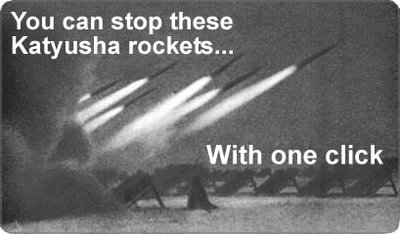
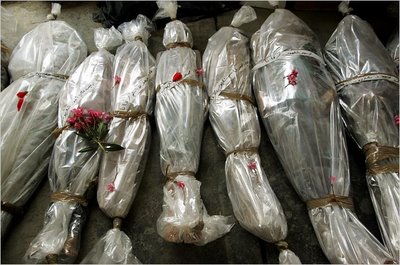 (Qana, July 30th 2006)
(Qana, July 30th 2006)

